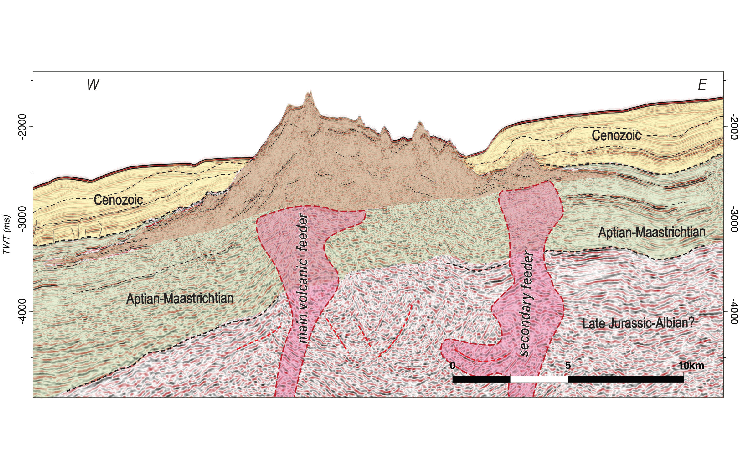24-05-2023

Ricardo Pereira, a Geobiotec researcher at the NOVA School of Sciences and Technology, and David Gamboa, researcher at the University of Aveiro, have just published a study in Geology, a peer-reviewed publication, which presents the possibility that an extinct volcano —
in this case the specimen studied was a volcano in west Portugal — could store up to 125 years of CO2 emissions.
The discovery could represent a unique opportunity to reduce carbon dioxide emissions in and around Portugal, as these extinct volcanoes located on continental margins around the world can safely and permanently trap hundreds (to thousands) of giga tonnes of carbon dioxide in newly formed minerals.
Essentially, these volcanic structures store the CO2 through a mineral carbonation process at the volcano's own location. "This process occurs naturally in basalts and peridotites (for example, the Semail ophiolite in Oman) and has been successfully replicated as an industrial method in Iceland in the Carbfix injection project", explains the research summary. This process is considered safer than storing in porous rock in the subsurface (currently the most standard method). This new approach allows estimating the volumes of CO2 captured in this volcano and other similar ones: "This single volcanic building may be responsible for storing up to 125 years of industrial emissions per year in Portugal."
The research, led by Ricardo Pereira, from FCT NOVA, and David Gamboa, from the University of Aveiro, lasted approximately two years from the beginning of the concept to the date of publication and results from a previous research project, developed with the collaboration of the oil industry and the Faculty of Sciences of the University of Lisbon.
"The first known works that consider the storage of CO2 in extinct volcanoes are by Holford and colleagues, from 2021, but at a conceptual level and are not directly related", explains Ricardo Pereira. "The study, now published, presents for the first time a specific approach for extinct volcanoes, taking as example an upper Cretaceous volcano in Portugal, with a quantification approach of storage volumes for these cases and applicable worldwide", he adds.
Na imprensa
Quanto dióxido de carbono pode armazenar um vulcão extinto? Investigadores respondem, SIC Notícias
Vulcão extinto perto da costa portuguesa pode armazenar 125 anos de emissões de CO2 da indústria, TSF
Investigadores portugueses calculam quanto dióxido de carbono pode armazenar um vulcão extinto, Correio da Manhã
Vulcão extinto pode armazenar quanto CO2? Investigadores calculam, Notícias ao minuto